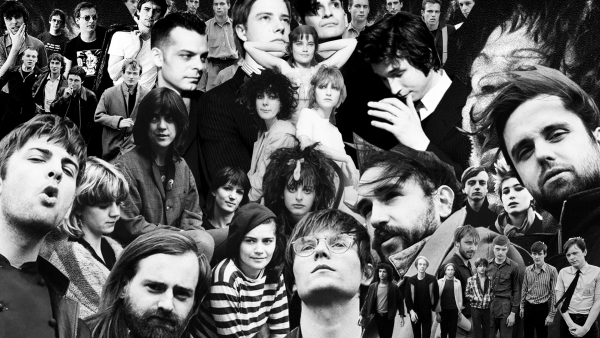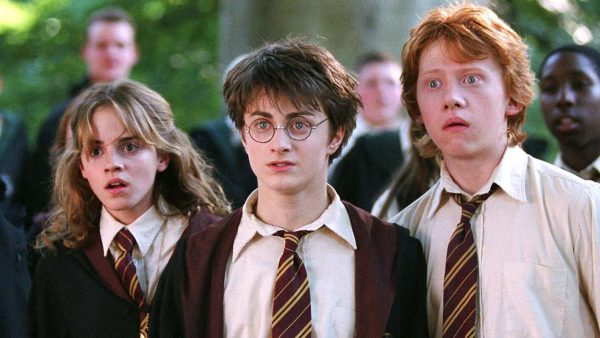‘Scenes From a Marriage’: Chemistry, Cinematography At It’s Finest

https://www.hbo.com/scenes-from-a-marriage/season-1
Based on the 1973 Swedish miniseries of the same name, Hagai Levi’s remake of “Scenes From a Marriage” starring Oscar Isaac and Jessica Chastain follows a deteriorating marriage over multiple years as told by certain pivotal moments in its course. With the miniseries releasing episodes every Sunday from Sept. 12 to Oct. 10 on HBO, the first installment successfully cements itself as a modern social commentary on present day relationships that confronts both monogamy and gender roles within the scope of a couple’s struggles within themselves and each other.
The chemistry between Jonathan, played by Oscar Isaac, and Mira, played by Jessica Chastain, is yet another example of the duo’s powerful on-screen dynamic as previously seen in the A24 production “A Most Violent Year” where they played yet another married couple winding toward collapse. While in their previous collaborations the pair was full of outward expressions of hatred and resentment, in “Scenes From a Marriage,” it’s much more subdued. Even the colors that quickly become characteristic of the cinematography choices are muted, reflecting the couple’s unspoken feeling and repressed dissatisfaction. Isaac and Chastain play the couple perfectly, inflecting just enough hope and adoration into their personalities to keep the audience guessing on the true nature of the character’s feelings, while making it clear that there is very little chance for them in the long-run. While it’s obvious they must have loved each other at some point, that has long since died down to mere contentment in their familiarity.
It’s clear that the deliberate and well-done contrast of Mira and Jonathan’s aloof and detached marriage-with the warm feel of the various settings among their house- only adds to the dual themes at play. Sunlight is streaming through the windows, books and family photos line the surfaces of the common areas, yet their bedroom is a minimalistic space that feels more like mutually uncharted territory rather than the homey feel one would expect from a shared bedroom. Each choice felt deliberate and well thought out, with every space reflecting the marriage’s charade and emptiness better than the previous one.
While the two leading characters have a comfortable routine of domesticity, the stark distance between them shatters any real facade of a happy marriage. It’s apparent that neither of them have any level of synchronization despite their practiced roles of playing husband and wife based on the script’s ability to convey a couple desperately trying to riff off each other when neither is sure of the right thing to say. The interview scenes within the first 10 minutes set the precedence for how Jonathan and Mira interact, and the literal divide between them by way of the window frame separating their positions on the couch, shows the extremities they’ve resorted to. The only moments of real happiness or passion between the pair are after they mutually decide to keep Mira’s unexpected pregnancy, and even then it quickly goes downhill within seconds as the excitement turns to the uncertainty they seem to be accustomed to. The ending of the episode speaks even more to their disjointed communication in terms of their differing goals and inability to fully express themselves.
Levi’s direction and writing style creates a perfectly constructed mirage of happiness, only furthered by Isaac and Chastain’s talent. Every scene is imbued with an oddly suited sense of warmth and coldness only understood by the themes presented of having every factor for a happy life, yet still being deeply unsatisfied regardless. The pan of the camera to focus on only one character at a time did more to wordlessly convey their dynamic than some movies can do in two hours. It’s also notable that the use of sound, both from the score and the silence, shows that the series is more about small, impactful moments than it is about big, dramatic ones, even with the looming inevitably of a blow-up confrontation once the series hits its climax. The subject matter has nearly been done to death, so it’s up to Levi to revive it with the blatantly modern issues portrayed to create a newfound tension within the plotline.
Other than the acting from the minimal cast, and the beautiful cinematography crafted by both Levi and Andrij Parekh, there’s not much else to this series thus far. It’s clear that for it to truly become a success story, the fewer variables means more pressure is being placed on what it does have, which is a whole lot of chemistry and some very pleasing visuals. With a first episode that sets expectations high for viewers, it’s still unclear whether the series will sink or swim amid the speculations and predictable plot, but it’s very likely it’ll still be a decent journey along the way.







